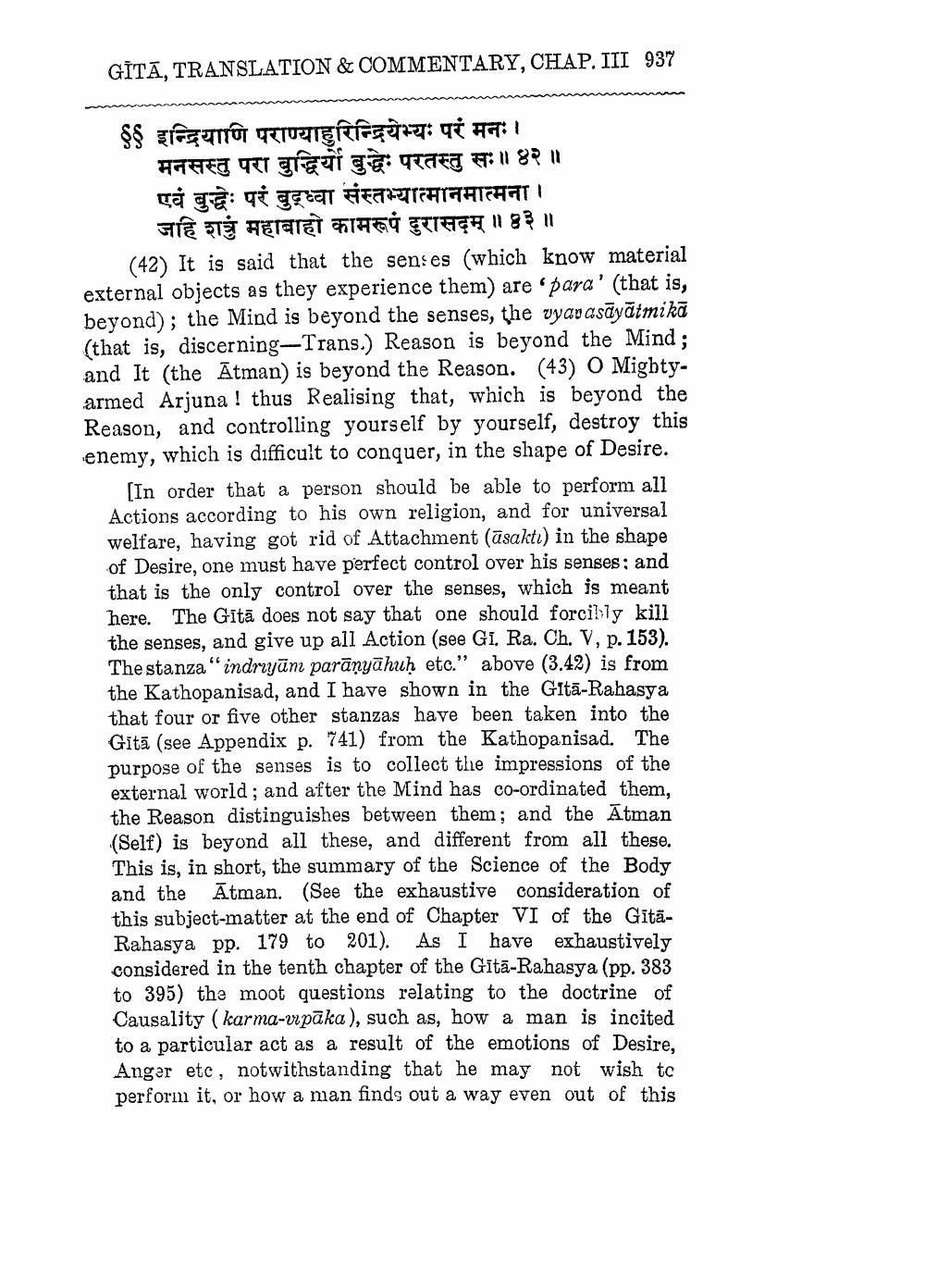________________
GĪTĀ, TRANSLATION & COMMENTARY, CHAP. III 937
$इन्द्रियाणि पराण्याहुरिन्द्रियेभ्यः परं मनः।
मनसस्तु परा बुद्धिर्यो बुद्धः परतस्तु सः॥ ४२ ॥ एवं बुद्धः परं बुद्ध्वा संस्तभ्यात्मानमात्मना।
जहि शत्रु महाबाहो कामरूपं दुरासदम् ॥ १३ ॥ (42) It is said that the senses (which know material external objects as they experience them) are 'para' (that is, beyond); the Mind is beyond the senses, the vyavasāyātmikā (that is, discerning--Trans.) Reason is beyond the Mind; and It (the Ātman) is beyond the Reason. (43) O Mightyarmed Arjuna ! thus Realising that, which is beyond the Reason, and controlling yourself by yourself, destroy this enemy, which is difficult to conquer, in the shape of Desire.
(In order that a person should be able to perform all Actions according to his own religion, and for universal welfare, having got rid of Attachment (āsaktı) in the shape of Desire, one must have perfect control over his senses; and that is the only control over the senses, which is meant here. The Gitā does not say that one should forcibly kill the senses, and give up all Action (see GI. Ra. Ch. V, p. 153). The stanza" indriyūn parānyāhuḥ etc." above (3.42) is from the Kathopanisad, and I have shown in the Gitā-Rahasya that four or five other stanzas have been taken into the Gitā (see Appendix p. 741) from the Kathopanisad. The purpose of the senses is to collect the impressions of the external world, and after the Mind has co-ordinated them, the Reason distinguishes between them; and the Ātman (Self) is beyond all these, and different from all these. This is, in short, the summary of the Science of the Body and the Atman. (See the exhaustive consideration of this subject-matter at the end of Chapter VI of the GitāRahasya pp. 179 to 201). As I have exhaustively considered in the tenth chapter of the Gitā-Rahasya (pp. 383 to 395) the moot questions relating to the doctrine of Causality ( karma-vipāka), such as, how a man is incited to a particular act as a result of the emotions of Desire, Anger etc, notwithstanding that he may not wish to perform it, or how a man finds out a way even out of this




